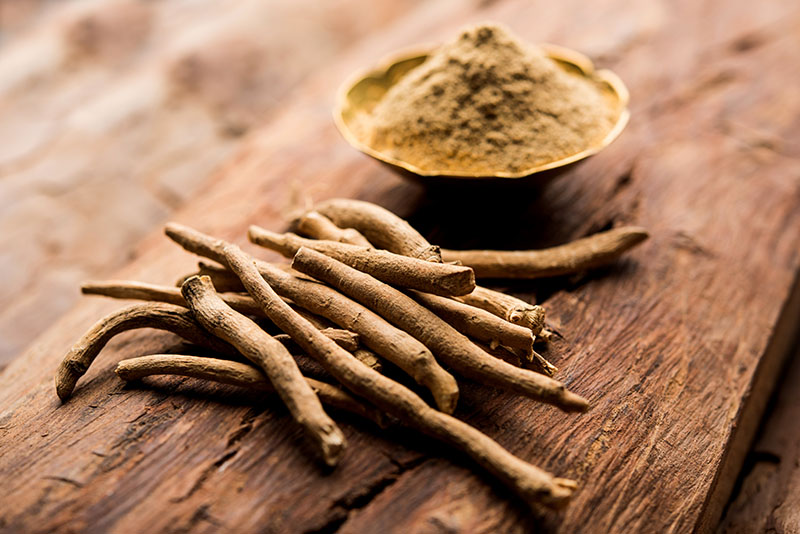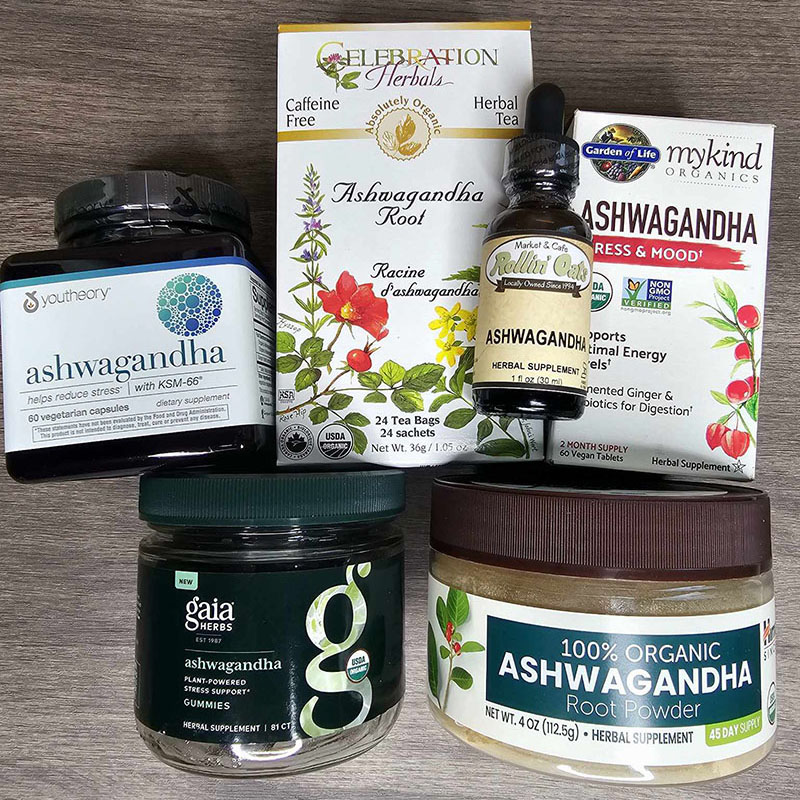Ashwagandha, an herb deeply rooted in ancient Ayurvedic tradition, has experienced a resurgence in popularity in recent years. The myriad of ashwagandha benefits cover many aspects of our everyday lives, which is why this remarkable adaptogenic herb has captivated the attention of wellness enthusiasts, researchers, and health-conscious individuals around the world.
Scientifically known as Withania somnifera, Ashwagandha has been used for centuries in Ayurvedic medicine. Ashwagandha’s benefits include stress relief, rejuvenation, and overall vitality. Turns out after hundreds of years, and modern science and medicine looking at it…it still does all those things.
How Ashwagandha Works
Ashwagandha is an adaptogen, meaning it has a normalizing effect on the bodies systems, especially the stress response. In simpler terms, if you’re too up (anxious, strung out) it helps bring you down, too down (fatigued) it helps bring you up. Ashwagandha’s benefits really shine during periods of physical or mental stress.

Ashwagandha’s benefits come from key bioactive compounds found in it. The withanolides, alkaloids, and flavonoids found in the root are responsible for the anti-inflammatory, antioxidant, and immunomodulatory effects, just to name a few.
Ashwagandha Benefits
There have been numerous studies and trials done with the herb and the data on Ashwagandha’s benefits can be overwhelming. It’s been shown to enhanced focus, memory, and overall brain health. It helps support energy levels, stamina, and overall vitality, especially in times of fatigue or exhaustion. More recently, ashwagandha’s immunomodulatory effects and its potential role in supporting a healthy immune system are being looked at.
It can be challenging trying to take this all in, but there’s an easy way to think about it. All of the body’s systems are affected by stress, so naturally if you’re able to help your body handle stress better, then everything will be better. That is the power of Ashwagandha.
How To Take Ashwagandha
Ashwagandha products offer a variety of ways to incorporate this wonderful herb into your daily routine. It is available in capsules, liquids, teas, and powders. If you’re the type that’s making smoothies almost daily, adding up to a teaspoon of the powder is a great way to include it in your routine. Capsules and teas are pretty self-explanatory, follow bottle dosage. Liquid tinctures can provide some of the most convenient ways to take it, and at good doses, but you have to be okay with the taste (Ashwagandha’s taste isn’t bad, but the alcohol in tinctures can make it rough to take.)

Ashwagandha has the benefit of being one of the more researched herbs out there, which means the data concerning its efficacy and safety is more reliable. Since it is a nightshade, those with an allergy to nightshades should not take Ashwagandha. Also, if you’re pregnant or nursing you’ll always want to consult your doctor before trying it.
Ashwagandha is generally considered safe and drug interactions are rare, but again it’s always good to check with a doctor first before considering it.
An Ancient Herb For Modern Life
Ashwagandha, with its rich history and modern applications, has emerged as a potent herb for supporting overall well-being in today’s hectic world. Whether you seek stress relief, cognitive enhancement, improved energy, or immune support, ashwagandha offers a natural solution rooted in time-tested tradition.